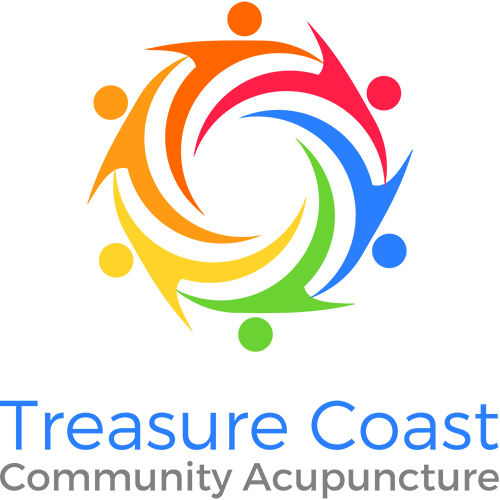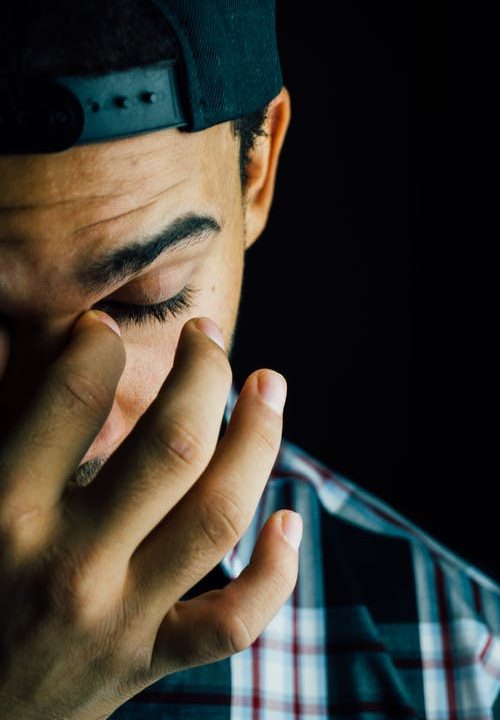At TCCA We Strive to Help Our Clients Learn What They Need To Know To Take Care of Themselves as well as Providing the Best Darn Acupuncture in Stuart!
Acupuncture Stuart = Treasure Coast Community Acupuncture
By Alan R. Gaby, M.D.
United States regulatory agencies have recently reversed a 20-year ban on the over-the-counter sale of the essential amino acid L-tryptophan, and will once again allow it to be sold as a dietary supplement. The United States joins other countries such as the United Kingdom, Japan, and the Netherlands in letting the public have access to this valuable nutrient, which is often an effective treatment for depression, insomnia, and premenstrual dysphoric disorder.
In the 1980s, L-tryptophan was a very popular dietary supplement. However, over-the-counter sale of this amino acid was banned in 1989, after a manufacturing error by one of the world’s five L-tryptophan producers introduced a contaminant into the product that resulted in more than 1,500 of cases of eosinophilia-myalgia syndrome, including 27 deaths. The manufacturing error was identified and corrected relatively quickly, and there have been no reports of eosinophilia-myalgia syndrome resulting from the use of uncontaminated L-tryptophan.
Now that L-tryptophan is back, it is important to be aware of ways to maximize its safety and efficacy. First, be aware of drug interactions. Because L-tryptophan increases serotonin levels, co-administration of L-tryptophan and antidepressants that increase serotonergic activity (such as selective serotonin-reuptake inhibitors [SSRIs], amitriptyline, or monoamine oxidase inhibitors) may increase both the efficacy and the toxicity of the drugs. If a patient is taking one of these medications, L-tryptophan should either be avoided completely or used with caution and in low doses (perhaps 500-1,000 mg/day), while monitoring for signs of serotonin excess (serotonin syndrome). There is one exception to this caveat: when initiating SSRI treatment, administration of up to 2 g per day of L-tryptophan for up to four weeks may accelerate the onset of the drug’s antidepressant effect and protect against the development of insomnia, a frequent side effect of SSRIs in the early stages of treatment.1 However, patients should be monitored closely during this time, because serotonin excess can be life-threatening. Co-administration of L-tryptophan and a triptan (e.g., sumatriptan, zolmitriptan, eletriptan) may also lead to serotonin excess, and should be avoided. In addition, L-tryptophan and 5-hydroxytryptophan (5-HTP) each increase serotonin levels, and should not be taken together.
Second, the timing of L-tryptophan administration in relation to meals may influence its effectiveness. L-Tryptophan competes with other amino acids for intestinal absorption and for uptake into the brain. Taking L-tryptophan with a high-protein meal decreases its effectiveness, whereas taking it on an empty stomach increases its efficacy. L-tryptophan is most effective when taken on an empty stomach along with some carbohydrate (such as a small glass of orange juice or a piece of fruit). Eating carbohydrates causes the body to release insulin, which promotes the uptake of L-tryptophan into the brain.
The dosage of L-tryptophan used in clinical trials has usually ranged from 1 g per day to 6 g per day. In the treatment of depression, there may be a “therapeutic window,” in that L-tryptophan may lose its efficacy if the dosage exceeds 6 g per day. In treating depression, L-tryptophan should be given in at least two divided doses per day, in order to minimize fluctuations in plasma tryptophan concentrations.2,3 For the treatment of insomnia, many people take 500 to 2,000 mg 30 minutes before bedtime. L-tryptophan appears to be most useful for people with mild insomnia, for healthy individuals who have longer-than-average sleep onset latency (the amount of time required to fall asleep), and for people who have clear awakenings three to six times during the night4. For the treatment of premenstrual dysphoric disorder, a double-blind trial found that a dosage of 2 g three times per day during the second half of the menstrual cycle was beneficial.5 In my experience, as little as 500 to 1,000 mg taken at night during the last half of the menstrual cycle is sufficient to relieve dysphoric symptoms in some cases.
While 5-HTP appears to be an effective treatment for depression and insomnia, it may preferable to use L-tryptophan. Unlike 5-HTP, L-tryptophan is a building block for protein synthesis and is also metabolized to important compounds such as niacin and picolinic acid. Consequently, if a person is deficient in tryptophan, then supplementing with L-tryptophan would provide a broader spectrum of benefits than would treatment with 5-HTP.
 Alan R. Gaby, MD, received his B.A. from Yale University, his M.S. in biochemistry from Emory University, and his M.D. from the University of Maryland. He is past president of the American Holistic Medical Association and Contributing Medical Editor of The Townsend Letter for Doctors and Patients. He provided expert testimony to the White House Commission on Complementary and Alternative Medicine regarding the cost-effectiveness of nutritional supplements. He is the author of Preventing and Reversing Osteoporosis and B6: The Natural Healer, andco-author of The Patient’s Book of Natural Healing. He has compiled a collection of more than 25,000 scientific papers related to the field of nutritional medicine. He has appeared on the CBS Evening News and the Donahue Show.
Alan R. Gaby, MD, received his B.A. from Yale University, his M.S. in biochemistry from Emory University, and his M.D. from the University of Maryland. He is past president of the American Holistic Medical Association and Contributing Medical Editor of The Townsend Letter for Doctors and Patients. He provided expert testimony to the White House Commission on Complementary and Alternative Medicine regarding the cost-effectiveness of nutritional supplements. He is the author of Preventing and Reversing Osteoporosis and B6: The Natural Healer, andco-author of The Patient’s Book of Natural Healing. He has compiled a collection of more than 25,000 scientific papers related to the field of nutritional medicine. He has appeared on the CBS Evening News and the Donahue Show.
REFERENCES
1. Levitan RD, Shen JH, Jindal R, Driver HS, Kennedy SH, Shapiro CM. Preliminary randomized double-blind placebo-controlled trial of tryptophan combined with fluoxetine to treat major depressive disorder: antidepressant and hypnotic effects. J Psychiatry Neurosci 2000;25:337-346.
2. Chouinard G, Young SN, Annable L, Sourkes TL. Tryptophan-nicotinamide combination in depression. Lancet 1977;1:249.
3. Chouinard G, Young SN, Annable L, Sourkes TL. Tryptophan-nicotinamide, imipramine and their combination in depression. Acta Psychiat Scand 1979;59:395-414.
4. Lindsley JG, Hartmann EL, Mitchell W. Selectivity in response to L-tryptophan among insomniac subjects: a preliminary report. Sleep 1983;6:247-256.
5. Steinberg S, Annable L, Young SN, Liyanage N. A placebo-controlled clinical trial of L-tryptophan in premenstrual dysphoria. Biol Psychiatry 1999;45:313-320.




